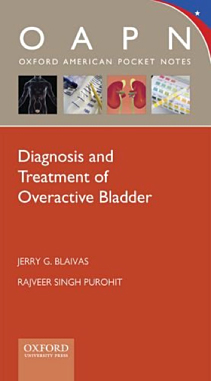New York Urologist’s Inspiration for Becoming a Physician
Although unsure as to what exactly inspired him to become a physician, Dr. Blaivas is a very passionate person who enjoys everything he does. The notion that he is helping people and has the opportunity to do so everyday, keeps him going.
Jerry Blaivas, MD: Well, to be honest, I have no idea what inspired me to become a doctor in the first place. By nature, I am a really passionate person, I like practically everything I do, I never get bored and I think whatever I was doing in college at the time made me apply to medical school. I was not pre-med, I have not even taken pre-med courses and when I actually got into medical school, while everybody else was taken to senior vacation, I was taking my pre-med requirements to get into medical school.
So I do not know what made me do it in the first place but I can tell you what keeps me going and what makes me love it and that is the real ability to help people and make a difference by applying just common sense logic to the practice of medicine.
What I see happening around me, something that I do not like very much, and with increasing regulations and more and more doctors are being asked to treat patients according to different algorithms.
An algorithm is, for those of you who do not know, is sort of a step by step explanation of what you do. If you see this, do that. I do not like that approach to medicine. I think that an algorithmic approach is fine if the doctor does not know about the condition he is treating and that, I supposed, in a public health sense, if you have got too many patients and not enough doctors, then you have got to teach doctors to take care of patients who have conditions that they are not that expert at.
When you are specialist, like a urologist, that should no longer be necessary because algorithms are for populations of patients, which means that if you took, for example, everybody that had to rush to the bathroom because they felt like they had to rush to the bathroom and you gave all of them an antibiotic, which a lot of them do not need, you would be correct in may be 50-60% of the time and 50-60% of the time, they would not even need anything and you say that is pretty good we can eliminate 50 to 60% of the patients.
But antibiotics and all treatments have complications, I prefer to treat the patients not in groups and treat 60%. I think we should take the patient one at a time and not say well you most likely have an infection, but actually do the test to see whether or not you have an infection.
Only about half of women for example with symptoms of infection actually have an infection and that is kind of, in a capsulated way, what keeps me going. I want to take the individual patient, do whatever is necessary to find out what their particular problem is and treat them based on the underlying cause of their problem, taking into account their wants and needs and expectations.
Just to give another example, a person may get up four or five times at night and in one patient the patient cannot get back to sleep, it is driving him nuts and we have got to find the cause and treat it. Another patient getting up four or five times at night might say “you know what, the bathroom is right next to my bedroom. It does not bother me at all”. That patient needs no treatment at all. So being able to individualize and give each patient the best possible outcome that I can, based on the particulars of their particular problem, is what keeps me coming back in medicine.
Request an Appointment












